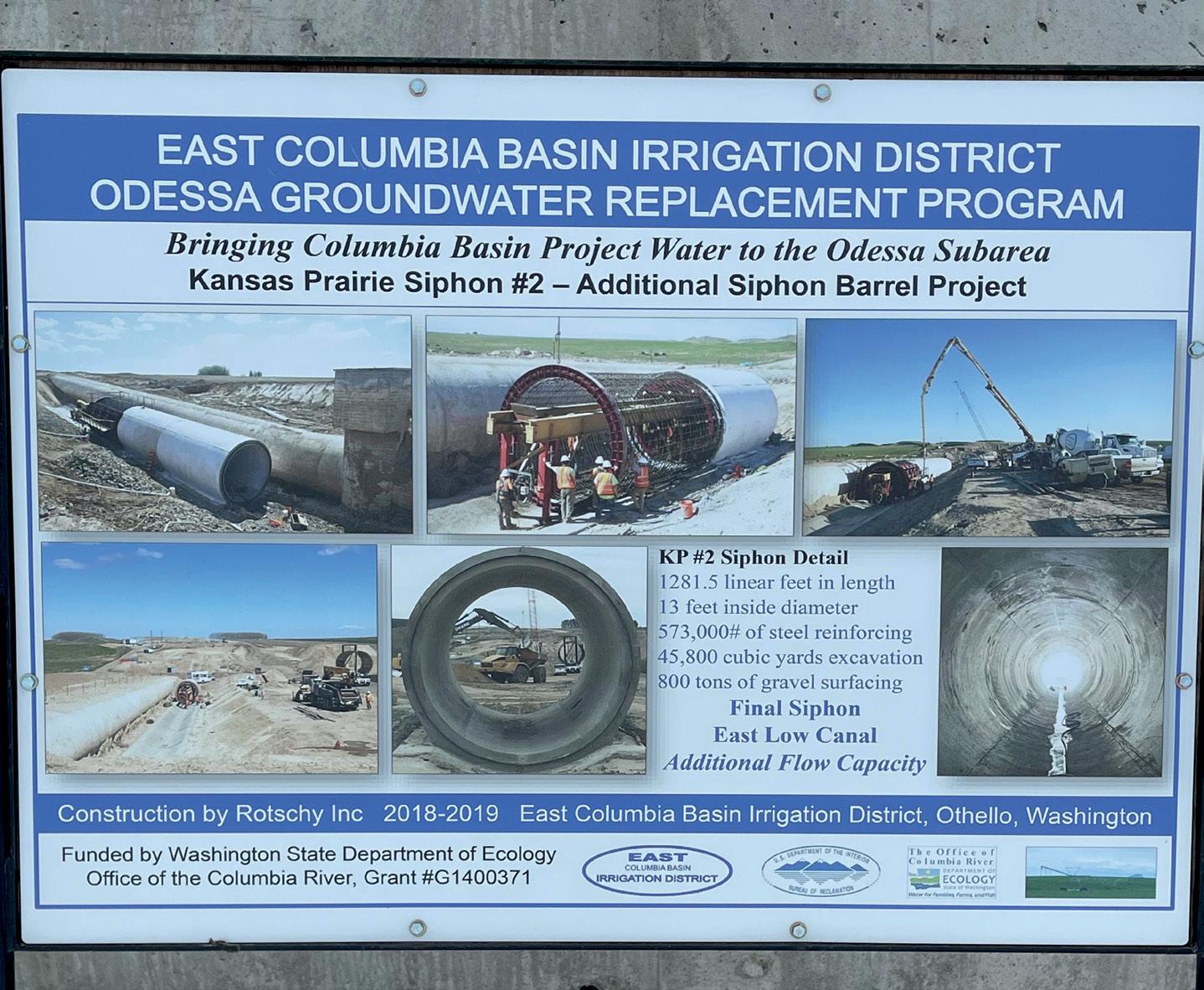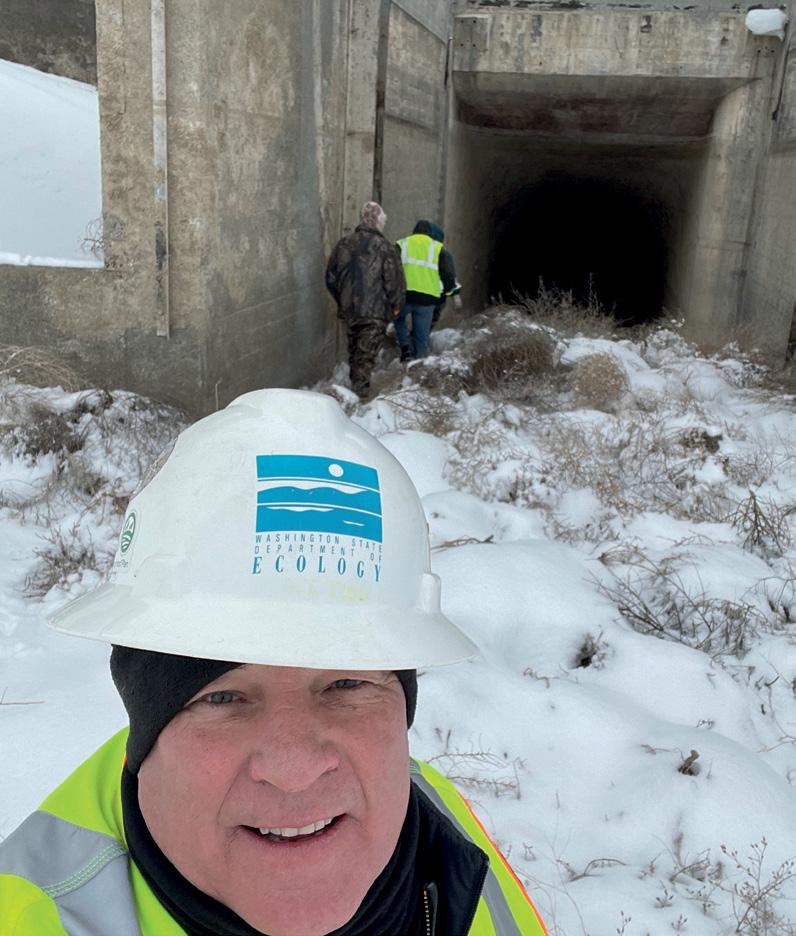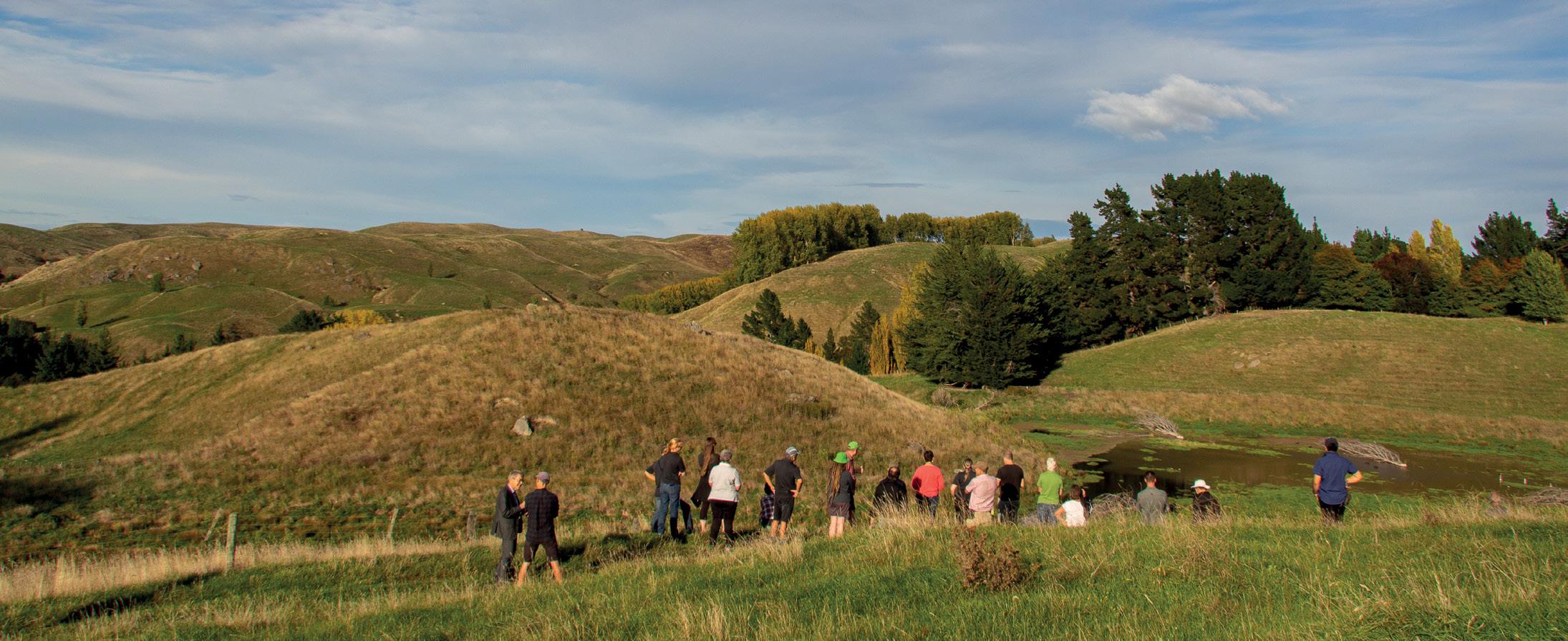
6 minute read
Thomas Tebb – a career driven by the importance of freshwater management
A career driven by the importance of freshwater management
Thomas Tebb has over 36 years of environmental and engineering experience in both the private and public sectors. Currently, Thomas is the Director for the Office of Columbia River (OCR) within the Department of Ecology, Washington, USA, and maintains an office in Ecology’s Central Regional Office located in Union Gap.
Advertisement
Thomas has over 29 years of experience with the Department of Ecology and has served as Central Regional Director and manager in four different programs during his tenure with the agency. Those programs include Nuclear Waste, Shorelands and Environmental Assistance, Water Quality and Water Resources.
He received his Bachelor of Science degree in Environmental Geology from Western Washington University. Thomas is a licensed geologist, hydrogeologist, and engineering geologist in the State of Washington.
We caught up with Thomas to hear his story.

What is your role and how did you become interested in water management? Was it something as a child? Was it when you were studying?
SSince 2015 I have served as the Director of the Office of Columbia River for the Washington State Department of Ecology. I am nearing my 30-year anniversary with Ecology, which is in January of 2022. When I started working for Ecology at the Hanford Nuclear Site in 1992, I really only thought I would be with the state for a couple of years. During my career with ecology, I have had a variety of senior technical, managerial, and executive positions covering a span of environmental interests mostly centred on water. I am also a licensed geologist, hydro-geologist, and engineering geologist with the State of Washington. I am currently serving my second term on the State’s licensing Geology Board.
Water was always important and a fascination with me from an early age. I grew up on my uncle’s fruit ranch in Zillah, Washington, and learned at an early age how important water is to agriculture and our way of life in eastern Washington State. Our family farm received water from the Bureau of Reclamation’s Yakima Irrigation Project, which brought water to the desert. Our farm received both senior and junior water supply so we always were worried about whether we would have enough water for the irrigation season. As junior water users (water rights with a priority date after May 10, 1905), we often received less than a full supply.
There was not really a place for me on the family farm, and I was ready for change when in 1980 I went off to college to Western Washington University in Bellingham, Washington. I decided to study geology because I like working outdoors and with natural systems. The landscape in eastern Washington, with mostly sage-brush, allowed for the curious mind to reflect and wonder at what formed the landscape in which we live. In 1984, I graduated from Western with a Bachelor of Science degree in environmental geology. At the time it was a bit new. I was the only graduate to earn that specific degree out of the entire geology class that year.
The remainder of my career at Ecology centred on water, whether that was in shoreline protection and riparian habitat, water quality, or water resources. Prior to my job at OCR, I served as the Regional Director for the Central Region Office, which meant that many of the issues and problems that could not be resolved at the section manager (mid-management) level were transferred up to my office for resolution.
What has been the journey to the role you have today? What has your work involved, and what are some of the challenges/ successes you have experienced along the way?
After graduation I looked for work in the Pacific Northwest, but could not find anything where I could use my education, so I looked south to California. I moved to the San Francisco Bay Area and found a job there as an entry-level geologist, working for a small geotechnical and environmental firm. I worked there for seven years, slowly working my way up the seniority level, and ultimately achieved senior project geologist. The jobs were diverse in nature and covered everything from environmental remediation to geotechnical and geological investigations of dam sites, slope



stability, and soil and rock mechanics.
My high school sweetheart and I were married at Lake Tahoe in 1985, and we started a family in 1988 with the arrival of my first daughter. We eventually had another daughter in 1990, and it was then that we realised that we wanted to return to the rural environment in which we were raised.
I was successful when I applied for a job with the Department of Ecology’s Nuclear Waste Program, which had just been established for the purposes of environmental clean-up at the Hanford Nuclear site in southeast Washington state. As a boy, our family would often travel along the margins of the secret nuclear site, but no one ever talked about what was going on out there. I was naturally curious and I wanted to help improve the environment in my own backyard, so to speak, which was damaged due to the production of plutonium ‘buttons’ used in nuclear weapons. After about seven years of working on the complex issues at the Hanford site, I was ready for a career change. That change took me to Spokane and Yakima where I worked with local government in all eastern and central Washington Counties, working to improve or create shoreline protection plans. That job evolved into an opportunity to manage a team of Water Quality specialists, which in turn took me to managing the Water Resources Team, and ultimately the entire Ecology office in the Central Region. In 2015, I was asked to lead the Office of Columbia River, and have found immense joy and satisfaction in making a difference to developing water supply for people, farms, and fish.
What has been your biggest achievement?
I think my biggest achievement is getting federal legislation passed in 2019 to support the federal acknowledgement of the Yakima Basin Integrated Plan. I made many trips to Washington, DC with our Yakima team of irrigation district managers, members of the Yakama Nation, and environmental groups, all lobbying in support of this important legislation.
How is irrigation different from New Zealand? What are the processes predominantly for? What is the water mostly used for?
The water in eastern Washington is mostly used for growing over 300 types of food crops, including a lot of fruit, particularly grapes, and the farms and irrigation districts are very large in size. While, in my experience in the Canterbury region of the South Island of New Zealand, irrigation seemed to mostly support pastures for dairies. There are, of course, many similarities too. The wine growing region of the northern portion of New Zealand’s South Island looked and seemed very similar to many areas in eastern Washington that grow wine grapes. I must admit that I fell in love with New Zealand and its people, and hope to return soon.
What are you working on now?
I have many large-scale water supply development projects that I am working on, and I would encourage your readers to look at the 2020 CRB Water Supply Inventory Report for more specific information. https://apps.ecology.wa.gov/publications/ documents/2012001.pdf
Where do you see the future of irrigation and freshwater management for yourself/ your area?
The future of irrigation and freshwater management is critical for our human societies and nations; to feed our people, protect our natural environment, and plan for future water supply needs. I see more emphasis on and need for water professionals to work with agricultural interests, municipalities, and environmental concerns and organisations, in order to balance the competing needs that a changing climate is likely to create.










